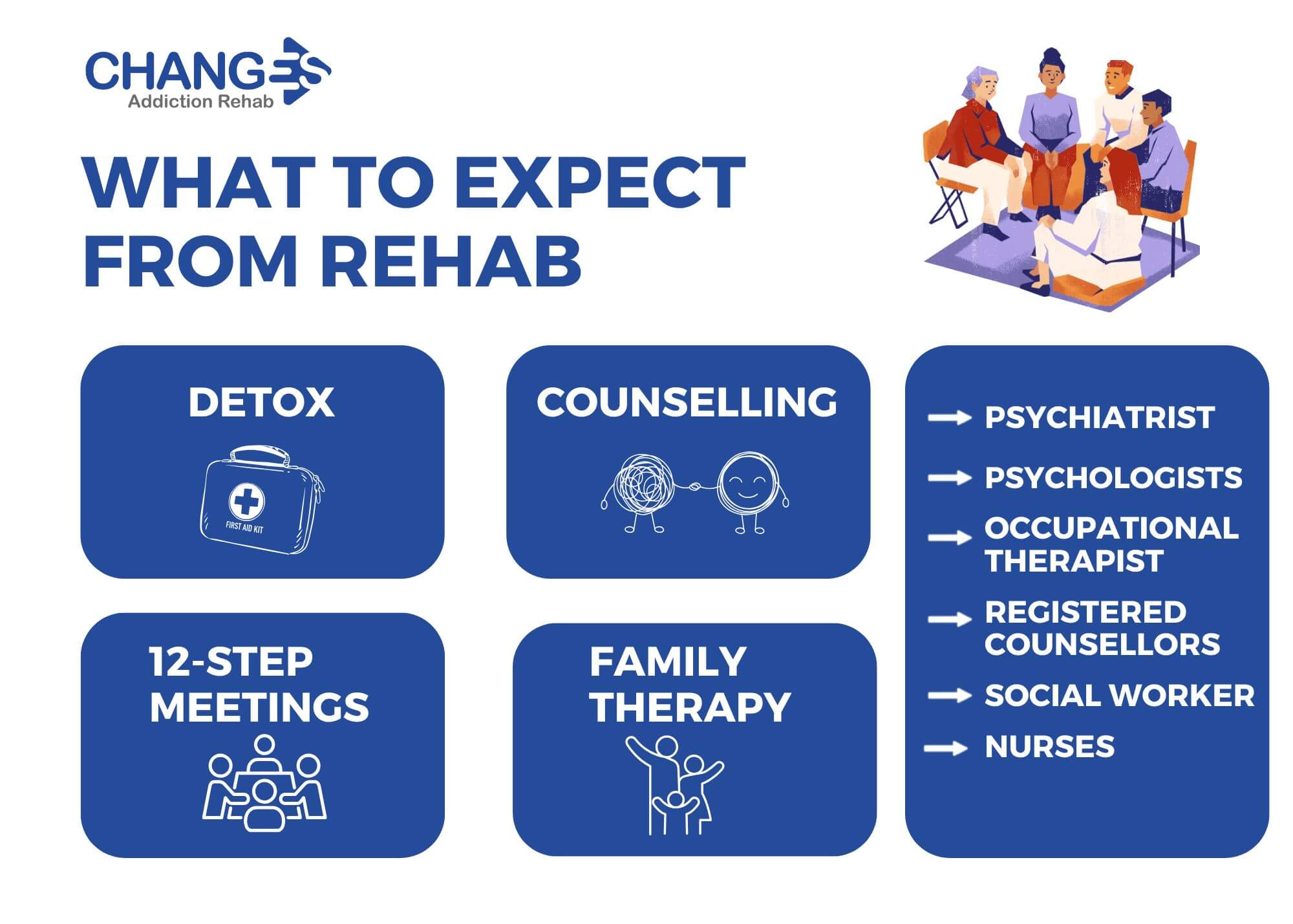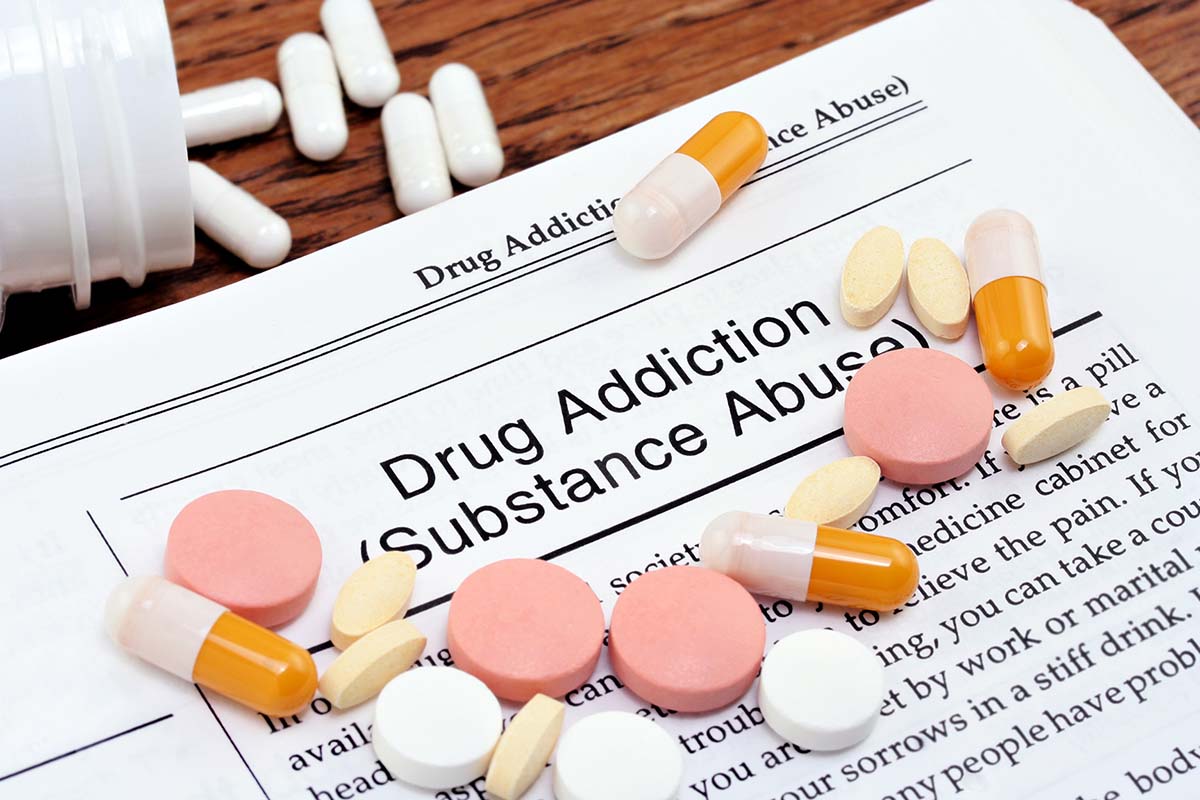Chemical Abuse Rehabilitation: Paths to Recovery and Recuperation
Drug abuse rehab plays an important function in assisting individuals get over the battles of dependency and restore their lives. Whether an individual is battling alcohol dependency, medicine dependency, or prescription abuse, rehabilitation centers offer a structured atmosphere for healing-- physically, psychologically, and mentally. In today's world, where the challenges of dependency prevail, recognizing what rehabilitation involves, its significance, and the sorts of services available can make a substantial difference in one's trip to healing.
Understanding Substance Abuse and the Need for Recovery
Chemical abuse impacts countless individuals worldwide, crossing age, gender, and socioeconomic lines. It is a complex problem defined by the compulsive use hazardous materials in spite of unfavorable consequences. Alcohol and drugs can change brain chemistry, causing physical reliance and emotional instability. With time, addiction takes control of a person's ability, judgment, and actions to work typically in culture. Numerous people that come under this cycle typically find it difficult to give up without professional assistance.
Rehab becomes necessary since dependency is not simply an absence of self-control-- it's a condition that affects the body and mind. Rehabilitation facilities provide evidence-based treatments that target the source of Substance Abuse instead of simply the signs and symptoms. These programs provide organized environments that encourage recovery with clinical detoxification, counseling, and skill-building. The supreme objective is to aid people create coping systems and lead drug-free, efficient lives.
The demand for rehabilitation frequently develops when a person can no more handle day-to-day duties or maintain connections due to Substance use. Family conflicts, work performance concerns, or wellness difficulties are often the initial indicators that specialist aid is required. By looking for therapy early, individuals can protect against long-term damage to their physical wellness and emotional health.
The Significance of Substance Abuse Recovery
Rehabilitation is not merely about quitting medicines or alcohol-- it has to do with transformation. The relevance of rehabilitation hinges on its alternative technique to recovery, concentrating on the individual overall rather than simply the dependency. Numerous individuals get in rehab at their most affordable point, frequently really feeling hopeless and separated. The organized atmosphere of a rehabilitation facility provides them with the devices and support to rediscover objective and self-worth.

Among the crucial benefits of rehabilitation is the clinical guidance supplied during detoxification. Withdrawal signs can be intense and, in some cases, deadly. Professionals keep track of the process, ensuring safety and security and comfort while decreasing the threats of relapse. Past physical healing, rehab likewise deals with the psychological facets of dependency with treatment and counseling. Cognitive-behavioral therapy (CBT), motivational talking to, and team sessions help people comprehend their triggers and discover healthy coping devices.
In addition, rehab offers lasting benefits that expand beyond the person. Families reclaim security, relationships are fixed, and communities benefit when people reintegrate as healthy and balanced, adding participants. Substance Abuse not just harms the person involved yet also impacts liked ones. Rehab aids break this cycle, fostering much healthier atmospheres for everyone included. Basically, rehab is a financial investment in life, health, and the future.
Solutions Offered basically Abuse Rehab Centers
Rehab facilities offer a variety of services tailored to the special demands of each individual. The objective is to create a customized treatment strategy that addresses physical, emotional, and social elements of healing. The first phase of many programs is clinical cleansing, where the body is cleaned of damaging materials under specialist guidance. Detoxification aids manage withdrawal symptoms securely, leading the way for additional restorative treatments.
Complying with detoxification, clients commonly relocate into treatment and counseling sessions, which create the core of dependency therapy. Private treatment allows customers to work one-on-one with licensed therapists to reveal underlying issues, such as injury or mental health and wellness problems that might have added to addiction. Group treatment, on the other hand, fosters peer assistance and accountability. Sharing experiences with others who have actually dealt with comparable struggles aids individuals feel comprehended and inspired.

Sorts Of Rehab Programs Available
Not all rehab programs coincide. Relying on the seriousness of addiction, personal choices, and life situations, people can select from a number of kinds of rehab programs. The most typical are inpatient, outpatient, and household therapy programs. Each deals distinct benefits made to deal with various degrees of care.
Inpatient rehab programs call for people to stay at the therapy facility full-time, normally for 30, 60, or 90 days. This environment offers continuous clinical and emotional assistance, removing diversions and temptations from everyday life. Inpatient treatment is excellent for those with severe addictions or co-occurring psychological wellness disorders, as it ensures thorough guidance and extensive therapy.
Outpatient rehabilitation programs supply more flexibility for people who can not dedicate to full-time treatment. Individuals participate in therapy sessions a number of times a week while continuing to live in the house or preserve work responsibilities. Outpatient care is best suited for those with light to modest addictions or for those transitioning from inpatient treatment. It permits people to use coping approaches in real-world settings while still getting expert guidance.
There are additionally specialized rehabilitation programs that cater to particular groups, such as adolescents, veterans, or females. Some centers incorporate faith-based techniques, while others concentrate on all natural recovery that integrates physical wellness and mindfulness practices (dual diagnosis rehab NJ). In addition, luxury rehabilitation facilities supply premium facilities and exclusive lodgings for those looking for comfort alongside care. No matter type, the primary purpose remains the exact same-- to direct individuals towards continual recuperation
Usual Reasons People Required Rehabilitation
Addiction does not happen overnight, neither does it have a solitary reason. Individuals seek rehabilitation for different factors, often linked to both ecological and personal factors. One of their explanation one of the most typical reasons is persistent anxiety and injury. People who have actually experienced emotional or physical trauma commonly turn to substances as a coping device. Gradually, this actions becomes regular, resulting in reliance. Recovery helps these individuals process unsolved pain via treatment and psychological support.
An additional significant factor is psychological health and wellness problems, such as anxiety, anxiousness, or bipolar affective disorder. When mental disorder goes unattended, individuals might self-medicate utilizing drugs or alcohol to escape their psychological distress. This dual-diagnosis situation requires specific treatment that attends to both dependency and psychological wellness at the same time. Rehabilitation facilities equipped with psychiatric treatment can aid stabilize these problems via drug management and therapy.
Public opinion and environmental influence likewise play a significant role basically Abuse. Peer stress, family dysfunction, or exposure to addicting materials from a young age can make individuals a lot more at risk to dependency. For some, addiction begins innocently-- with prescription drug following an injury or surgical treatment-- yet rises into misuse. Rehab uses a organized and secure course to damage without these cycles. It equips individuals to determine triggers, build healthier routines, and re-establish control over their lives.
The Trip of Healing and Life After Rehab
Healing doesn't end the day an individual finishes a rehabilitation program-- it's visite site a lifelong procedure of development and self-discovery. Life after rehab comes with difficulties, however likewise possibilities for revival. Many people describe it as a "2nd possibility" to deal with quality, objective, and gratefulness. The lessons found out throughout treatment, such as self-discipline, psychological recognition, and strength, end up being the foundation for a meeting life free from dependency.
After leaving rehabilitation, individuals are urged to participate in aftercare programs and support networks. Normal participation in team conferences or treatment sessions assists maintain responsibility and stops regression. Sober living environments can additionally provide transitional housing for those who need added structure prior to totally reintegrating right into culture - dual diagnosis rehab NJ. Maintaining a solid support group of family, close friends, and peers is critical for lasting success
Recuperation opens the door to personal development. Several people seek education, brand-new jobs, or volunteer work as component of their healing journey. They learn to manage stress with healthy electrical outlets such as workout, reflection, or imaginative pastimes. While regressions can occur, they are seen not as failures however as possibilities to enhance one's dedication to sobriety. Inevitably, resource drug abuse rehabilitation functions as the foundation for a life of flexibility, equilibrium, and purpose.

Verdict: Selecting Hope and Healing
Drug abuse rehab represents even more than a treatment-- it signifies hope. It is a bridge between anguish and renewal, offering people the opportunity to reclaim their lives from dependency's grip. Via professional treatment, structured treatment, and compassionate assistance, people can rediscover their toughness and function. Recognizing the services provided, the sorts of rehab readily available, the importance of rehab, and the factors individuals need it offers clearness for those seeking aid or sustaining liked ones on their journey.
Selecting rehab is not an indicator of weakness however of guts-- the guts to face discomfort, restore identification, and welcome a brighter future. Recuperation is feasible, and with the appropriate support, every action towards recovery brings a person more detailed to lasting freedom and tranquility.
Substance Abuse rehab plays an important role in aiding individuals get rid of the battles of dependency and restore their lives. The demand for rehabilitation typically emerges when a person can no much longer manage daily responsibilities or keep relationships due to Substance use. Inpatient rehab programs require people to stay at the treatment facility full-time, generally for 30, 60, or 90 days. Outpatient rehabilitation programs offer more flexibility for people that can not commit to full-time treatment. After leaving rehabilitation, people are encouraged to take part in aftercare programs and support networks.